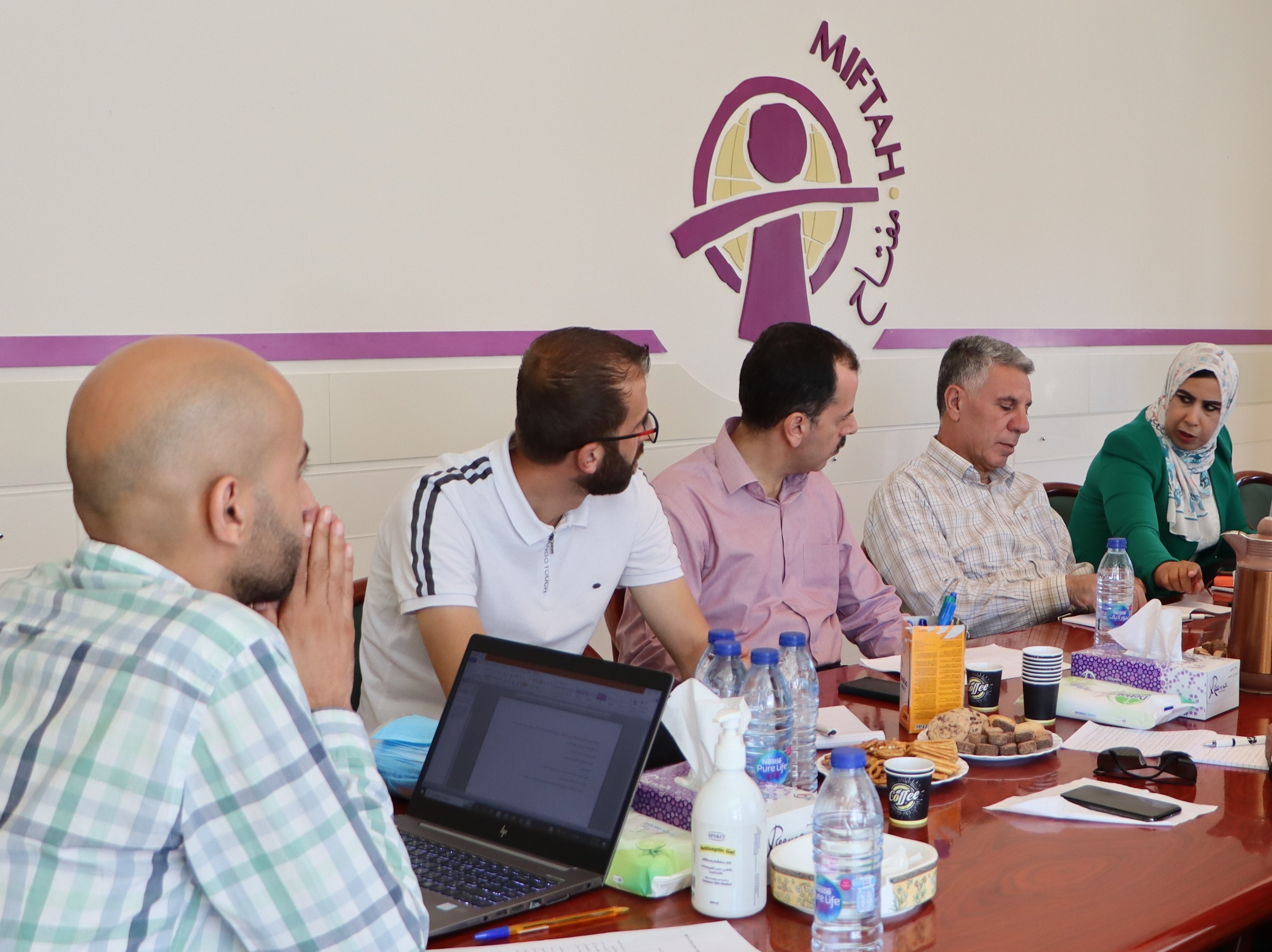MIFTAH recently signed a cooperation agreement and memo of understanding with the University of Palestine in Gaza City

The session began with a rundown of the most significant proposed legal amendments to the elections law, which CSOs have been discussing since 2013, in a bid to improve the efficiency of the electoral system. This entails guaranteeing the right of political participation for women and youth and reviving democratic principles to increase participation of the various social sectors. Most importantly, these include: amendment of the electoral system (proportional election system), lowering of candidacy age, threshold and women’s quota percentages, ban on first and second-degree relatives on the same list, direct election of local council president and setting a limit of two terms only for local council heads. Furthermore, the participants said CSOs must form a civil front that includes national and factional figures who can demand general elections. This front would be based on an agreed vision among institutions, the foundation of which would be a social contract (Basic Law and its stipulated principles). They maintained that this would lay the groundwork for partnership between the various civil components to demand elections and find a way out of the Palestinians’ political crisis, due to the failure to hold elections, the erosion of the system’s legitimacy, the rise in corruption within this system and the continued political division.
Meanwhile, the topic of laws by decree and the positions of CSOs was discussed. Some organizations said they believed the thwarted election process had created a legislative vacuum, which has obstructed and impacted citizens’ everyday lives. Institutions, however, were forced to deal with these laws by decree, given the need for updated laws that address pressing issues.
However, other CSOs believed the executive authority took advantage of the absence of the PLC to boost its dominance. They said these laws by decree serve the interests of the political system without any serious action to revive the legislative council through holding elections and ensuring the political right of citizens to choose their representatives. The participants capped off the session with a number of conclusions, including: agreement to form a broad-based national coalition to demand elections, through developing a civic vision based on the fundamental principles of the Basic Law; agreement on the proposed legal amendments and on broadening the circle of public and social debate until these amendments are adopted; promoting the legitimacy of this demand and the need to include the CEC vision for Local Council Elections, which is based on its actual experience during the 2021 local elections.
Hassan Mahareeq, officer in MIFTAH’s policy and dialogue unit, said the session was part of MIFTAH’s efforts to promote active political participation for all components of Palestinian society, particularly youth and women, by reviving mechanisms for democratic dialogue to ensure a legal and encompassing environment for this participation, which safeguards citizens’ rights, public freedoms and values of equality.
Legal Disclaimer:
EIN Presswire provides this news content "as is" without warranty of any kind. We do not accept any responsibility or liability for the accuracy, content, images, videos, licenses, completeness, legality, or reliability of the information contained in this article. If you have any complaints or copyright issues related to this article, kindly contact the author above.
